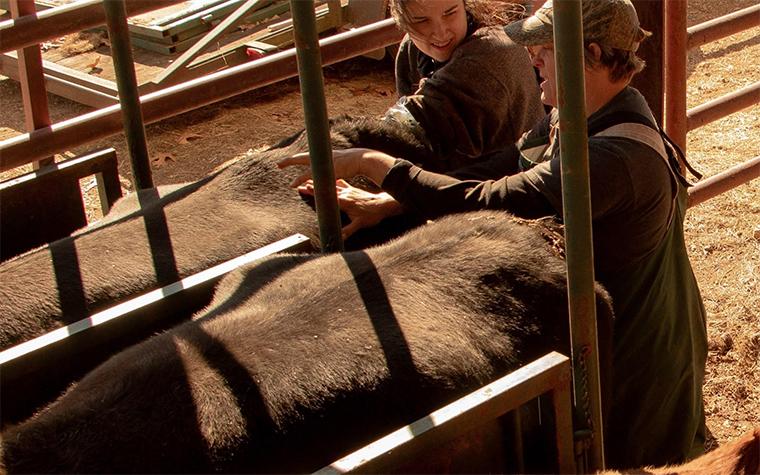MOUNTAIN GROVE, Mo. – With the U.S. cattle inventory at its lowest point in more than 70 years, artificial insemination (AI) could boost numbers, says University of Missouri Extension dairy field specialist Chloe Collins.
“The need to rebuild the national herd is urgent,” she says.
More than 66% of dairy cows are bred using AI, but only 11.6% of beef cattle are bred using this technology. “There is much opportunity here,” says Collins.
One of the most effective ways to begin rebuilding is through female-sorted sexed semen, which allows producers to increase the number of high-quality replacement heifers born into their herds.
This technology produces more than 90% female calves when used correctly, making it a smart strategy for producers looking to grow or stabilize their cow numbers after years of drought, liquidation and high input costs.
To help producers gain confidence and skills in AI, MU Extension hosted the Fall Cattle Artificial Insemination School on Oct. 21–23, 2025, at the MU Southwest Research, Extension and Education Center and Joplin Regional Stockyards. The 2.5-day training welcomed 12 participants from across southern Missouri—and even as far away as California, each eager to learn a skill that could transform their herd management, Collins says.
This year’s participants came in with a wide range of goals for how they plan to use their new skills, from teaching students and assisting producers to working in large-animal veterinary clinics and even pursuing careers as professional artificial insemination technicians, she says.
The course blended classroom instruction with hands-on practice. Topics included reproductive anatomy, semen handling, synchronization protocols and nutrition for breeding success. Participants dissected reproductive tracts to understand the anatomy before heading to the chute to practice AI techniques on headlocked cull cows.
By the end of the training, each student had successfully passed at least three insemination guns, with many completing more, Collins says. The small class size ensured personalized instruction and plenty of time in the rails to build confidence.
Beyond the technical skills, the school encouraged producers to rethink their breeding strategies. With droughts affecting forage availability and bull-related costs rising, AI offers a way to reduce reliance on herd bulls. Fewer bulls mean lower feed bills, fewer injuries and less risk of fence damage during breeding season.
“Whether you're looking to improve genetics, tighten your calving window, or rebuild your herd with purpose, AI and sexed semen offer powerful tools to help producers meet their goals,” says Collins.
Sign up to be notified about future AI schools.
The school was made possible through partnerships with Joplin Regional Stockyards, American Foods Group and Kent Daniels with Select Sires, who collaborated with MU Extension specialists to provide facilities, cattle and industry expertise that enriched the learning experience.
